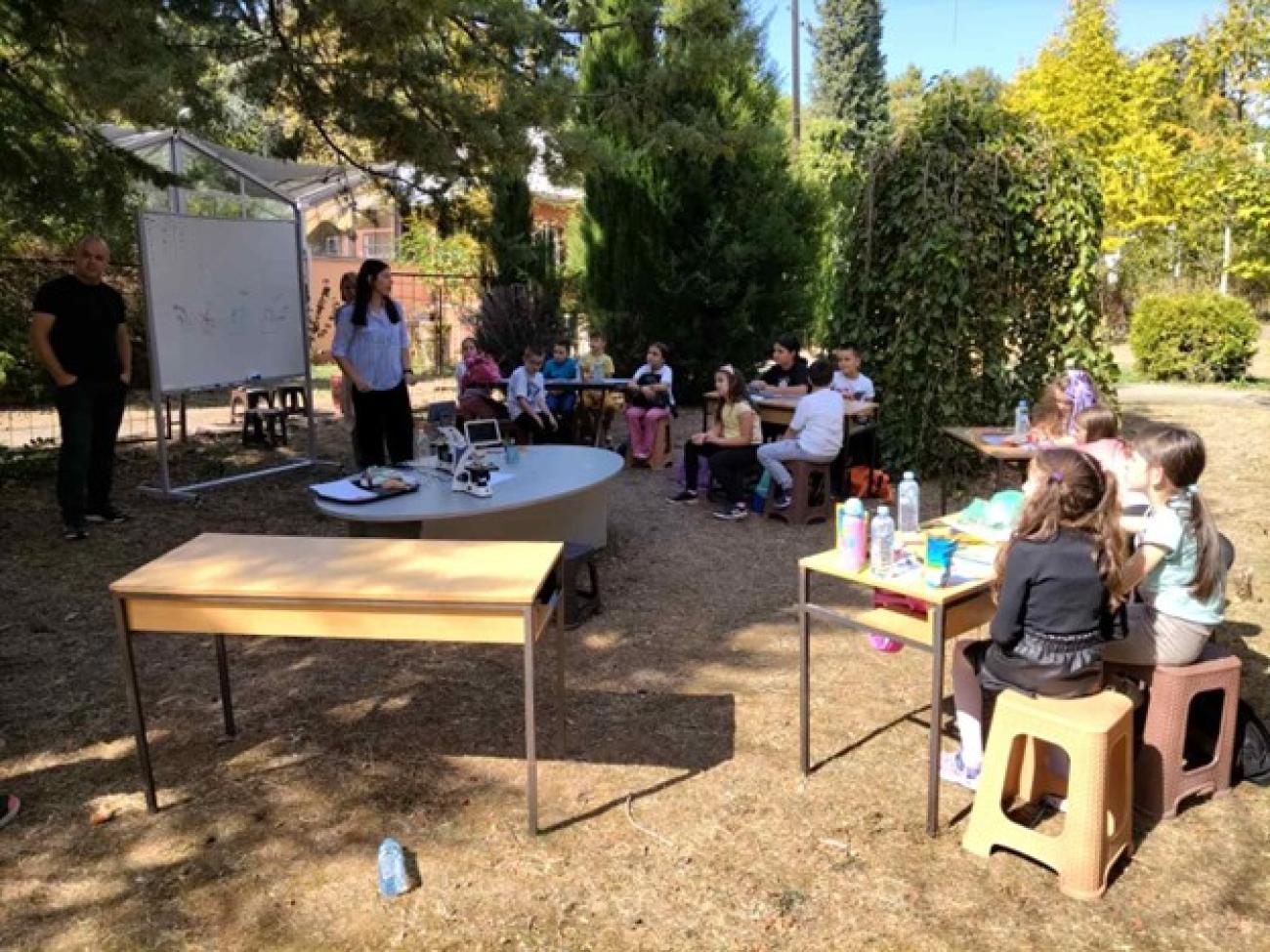Experiential learning programme to help students learn about air quality
Written by Jelena Brajovikj
Air pollution levels in North Macedonia and the Western Balkans are breathtakingly high and represent the single greatest environmental threat to human health, with city dwellers breathing air with concentrations of pollutants up to five times higher than levels specified in national, European, and WHO Air Quality Guidance standards.
Children and youth in the region have limited access to environmental education, resulting in a lack of awareness around air quality, the environment and climate-related issues. To address this, UNICEF is implementing a variety of programme activities, supported by Sweden, aimed at improving environment and climate change education, through opportunities for experiential learning.
As part of these initiatives, UNICEF established the Science Learning Network (SLN), a network of six institutions offering a joint educational programme on environment and climate change, aligned with national curricula and verified by the Bureau for the Development of Education. The six members of the SLN are the Macedonian Ecological Society, the Botanical Gardens in Skopje, the Hydrobiological Institute in Ohrid, Galichica National Park, the Educational Centre for Nature Preservation in Negrevo, and Narodna Tehnika – Skopje. Since its soft launch in the spring of 2023, close to 1000 students from across the country have participated in the SLN workshops.
From 20 to 22 December 2023, representatives of the six members of the SLN will convene at a workshop in Mavrovo, to initiate the development of an experiential learning programme on air quality. The programme will build onto the existing programme on environment and climate change and will be offered to schools and students from across the country. The development of the programme is part of a regional partnership between UNICEF and Sweden for Improved Air Quality in the Western Balkans.






